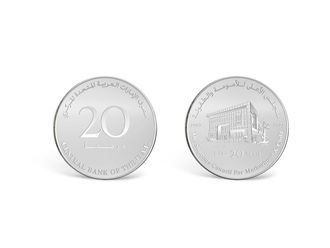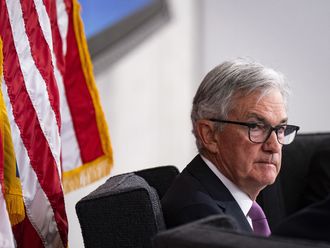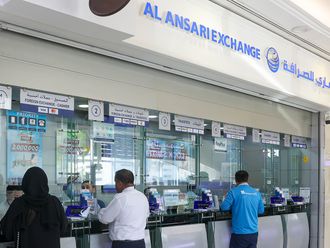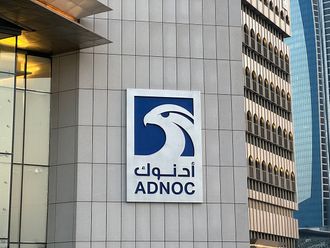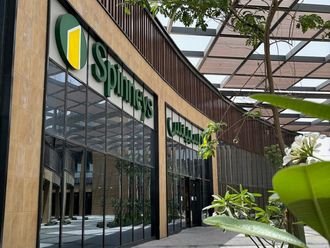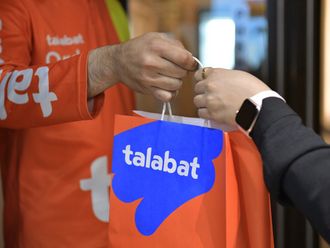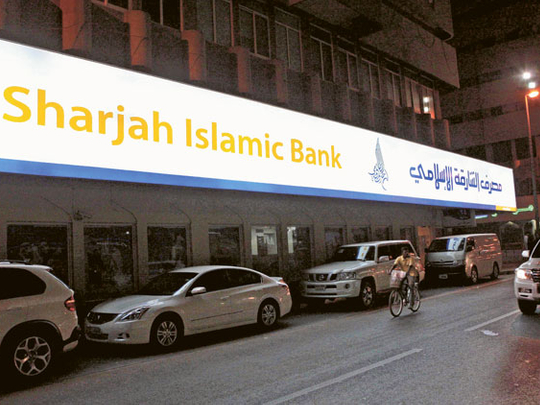
Dubai: Sharjah Islamic Bank met investors last week with plans to sell as much as $500 million (Dh1.8 billion) of sukuk as a scarcity of offerings drives down borrowing costs for banks to record lows in the Arabian Gulf.
Sales of Islamic bonds from the six-member Gulf Cooperation Council (GCC) slumped 58 per cent to $964 million so far this year, compared with the same period of 2010, data compiled by Bloomberg show.
The Sharjah-based bank, which has a $225 million floating-rate sukuk due in October, said in March it hired HSBC Holdings and Standard Chartered for a sale of five-year sukuk in the second quarter.
"There is decent liquidity in the markets which this can soak up, with the added benefit of a sukuk in a market starved of good Sharia-compliant paper," Adnan Haider, head of fixed- income and equities at Abu Dhabi Commercial Bank, said.
"Given that it will be a small size, there still is ample liquidity for new issuers."
Gulf banks are leading the return to sukuk markets with lenders including the Jeddah-based multi-lateral lender Islamic Development Bank and Bahrain's Albaraka Banking Group planning sales.
Yields
Yields on Islamic bonds of GCC financial services groups fell to a record 3.29 per cent on May 5, according to the HSBC/Nasdaq Dubai GCC Sukuk Financial Services US Dollar Sukuk Index.
The rate was at 3.33 per cent Thursday.
Progress on debt restructuring in the UAE has boosted investor confidence. State-owned Dubai World signed an accord with creditors to alter terms on about $25 billion of debt on March 23. Nakheel that day said it expects to reach an agreement with its trade creditors on payments by the end of the first half of the year.
Average yields on Islamic debt from the GCC were unchanged on Thursday at 4.64 per cent, bringing the decline since this year's high on February 28 to 141 basis points, or 1.41 percentage point, the HSBC/Nasdaq Dubai GCC US Dollar Sukuk Index shows.
The extra yield investors demand to hold the debt over the London interbank offered rate widened five basis points to 291.
Sharjah Islamic Bank, which is rated BBB+ by Standard & Poor's, may price its sukuk at a yield of about 5.5 per cent, said John Bates, the head of fixed income at London-based Silk Invest Ltd.
"This one is likely to price a little tight for our appetite," Bates said. "The issuer is BBB+ investment grade and is likely to price below 5.5 per cent which as a rule is our yield floor."
Gulf sukuk returned 2.6 per cent this quarter, according to the HSBC/Nasdaq Dubai GCC US Dollar Sukuk Index.
Fixed-income securities in developing nations gained 2.4 per cent since the end of March, according to JPMorgan Chase & Co.'s EMBI Global Diversified Index.
The difference in yield between Dubai's 6.396 per cent dollar sukuk and Malaysia's debt widened 11 basis points to 244 on Thursday, according to data compiled by Bloomberg.
It has narrowed 28 basis points this quarter. "Banks and institutions are currently flushed with liquidity and seeking appropriate investments to place funds," Omar Musharraf at DIB Capital said.
"The demand for Islamic investment instruments, coupled with the lack of sukuk issuance in 2011, ensures a decent book build for a new sukuk including Sharjah Islamic Bank."
Islamic Development Bank will sell as much as $1 billion of Sharia-compliant bonds this month, the Jeddah-based lender said in Jakarta on Wednesday.
Albaraka may sell $300 million of Islamic bonds in September, Chief Executive Officer Adnan Ahmad Yousuf said on March 28.
Sharjah Islamic Bank, which has the emirate of Sharjah and Kuwait Fin-ance among its owners, said on April 18 that first- quarter profit rose 4 per cent to Dh70 million.
The shares have gained 2.3 per cent this quarter, while the Abu Dhabi Securities Market General Index rose 2.5 per cent.
"I would expect strong interest if pricing is reasonably attractive given its investment-grade rating and varied ownership profile," Tarek Al Alaily, the London-based director of Middle East and North Africa fixed-income sales at New York- based Cantor Fitzgerald LP, said.


